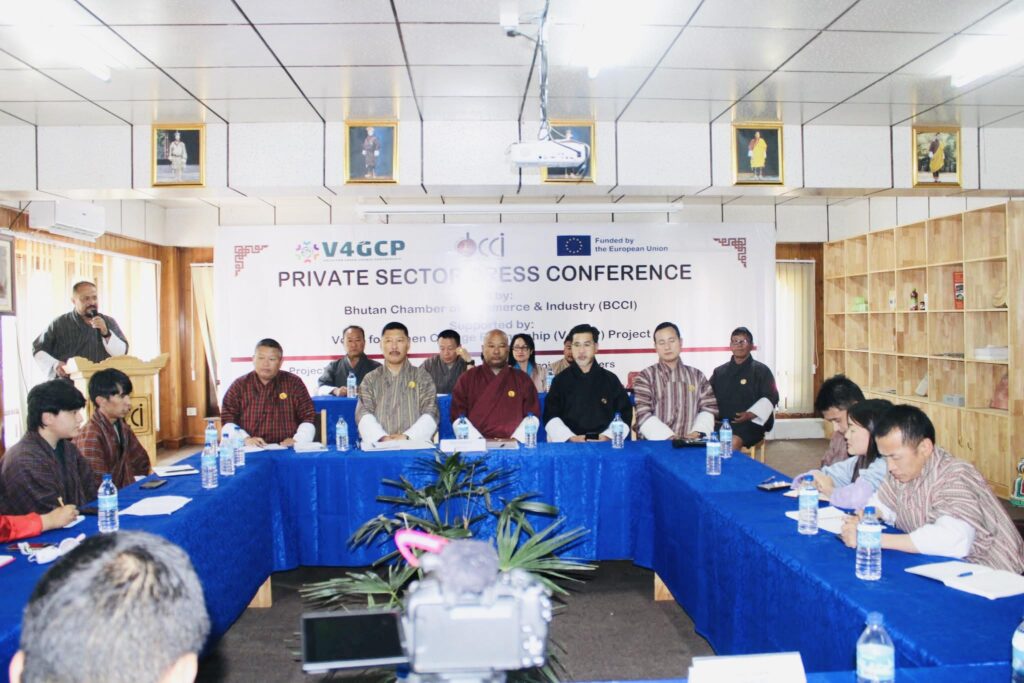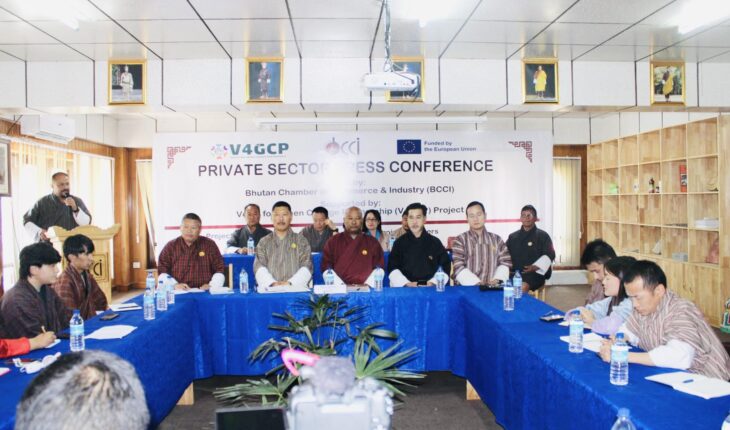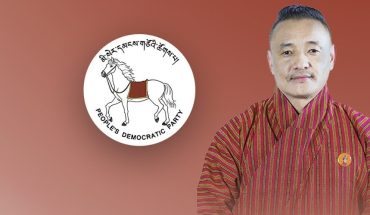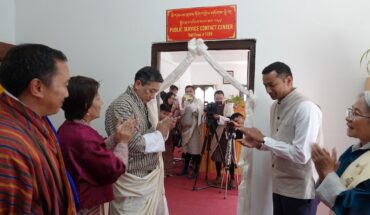
DAWA ZANGMO
Thimphu
he hotel industry in Bhutan is locked in critical consultations with the Ministry of Industry, Commerce and Employment (MoICE) and the Department of Tourism (DoT), as mounting financial stress, plummeting occupancy rates, and limited access to state-backed financial relief threaten the survival of many hospitality businesses.
Hotel operators are expressing growing alarm over several issues they claim are undermining the sector’s recovery prospects.
Chief among these is the escalating Sustainable Development Fees (SDF), soaring flight ticket costs, and the sector’s exclusion from the Economic Stimulus Programme (ESP) concessional loan scheme.
In light of these challenges, hoteliers have engaged in a series of ongoing dialogues with the government to request immediate policy and financial interventions.
One of the top priorities for the industry is a 50 percent waiver on the SDF, a move hoteliers argue would significantly boost Bhutan’s competitiveness as a tourist destination.
The current SDF rate is seen as a key deterrent to international travelers, especially in an increasingly competitive regional tourism market.
“Tourists often rethink their travel plans when they see the overall cost breakdown, and SDF is a big part of that. We’re not saying remove it, but a sensible reduction could make all the difference,” said Tshering Choki, owner of a small boutique hotel in Samdrup Jongkhar.
In addition to the SDF, hotel operators are also requesting the removal of added expenses such as monument fees.
These fees, they say, further inflate the overall travel budget and discourage longer stays or family travel.
Flight costs are another pressing concern. Bhutan’s limited air access and high fares have long been seen as obstacles to tourism growth, but stakeholders say the situation has worsened post-pandemic.
Industry representatives are urging the government to explore solutions that can make air travel more affordable and accessible, particularly for budget-conscious travelers from key markets like India, Thailand, and Singapore.
More urgently, hoteliers are calling for access to concessional ESP loans. The current framework of the Economic Stimulus Programme has largely excluded the hotel and tourism sector, despite the industry being one of the hardest-hit during the COVID-19 pandemic.
Hotel operators say financial stress continues unabated, with many still struggling to service debts, pay staff salaries, or meet operational expenses.
“For two years we survived with zero revenue. Now, even with borders open, occupancy is below 30 percent for many of us,” shared Kelzang Choden, who manages a 12-room family-run lodge in Bumthang.
She added they are just asking for fair access to financial tools so they can stay afloat.
Leading these advocacy efforts is the Hotel and Restaurant Association of Bhutan (HRAB), which has been actively pushing for greater consideration of the sector within the government’s financial frameworks.
According to HRAB Chairman Ugyen Tenzin during the press conference held on 18 July said that the tourism and trade sectors have been overlooked in the design of the ESP.
He said the association raised this issue directly with the Prime Minister, who acknowledged the industry’s grievances and assured attention to the matter.
HRAB also submitted its concerns to the ESP Steering Committee and met with MoICE on May 28, where it pushed for the inclusion of hotels in the loan scheme.
Following the meeting, MoICE informed HRAB that it would discuss the proposal with the Royal Monetary Authority (RMA) on July 14, exploring the possibility of offering ESP loans to hotels at an interest rate of 4 percent.
HRAB is currently awaiting feedback on that discussion, but expectations remain high that the government will consider the request with urgency.
During another round of talks involving hotel owners, the DoT Director, and the HRAB Vice Chairman, hoteliers again pressed for concrete financial and policy support.
Additional concerns were also raised at the meeting, including a growing labour shortage in the hospitality sector.
Many young Bhutanese are seeking employment abroad, leading to a significant manpower gap in domestic hotels.
Hoteliers have requested that the government extend the Youth Engagement and Livelihood Programme (YELP) benefits to private-sector employees above the age of 29, especially those working in tourism and hospitality roles.
Price undercutting among 3-star hotels has emerged as another issue threatening business viability.
Some hotels are offering unsustainably low rates in an attempt to attract limited tourist traffic, which other hoteliers say creates unhealthy competition and deteriorates service standards.
Furthermore, industry players are calling on the Department of Tourism to step in and establish fair pricing regulations to ensure market stability.
“We’re seeing hotels slash rates below operating costs just to keep some guests coming in. But that’s not a viable long-term solution it affects service quality and the entire sector’s image,” noted Tshering Dorji, manager of a mid-range hotel in Thimphu.
Alongside financial assistance and regulatory support, hoteliers are also requesting government backing in negotiating with banks for loan deferments and softer repayment conditions.
Marketing and promotional assistance is another area where hoteliers feel more can be done.
Operators recalled the Prime Minister’s earlier commitment to providing financial assistance for tourism marketing, expressing hope that these promises would soon be realized in actionable programs.
While waiting for government interventions, HRAB has stated it is also exploring independent initiatives to strengthen the sector internally.
Recognizing that they cannot rely solely on public support, the association is planning to offer training programs in hotel management and digital marketing, aimed at boosting service standards, digital visibility, and operational resilience.
One of the most widely supported demands among hotelier’s remains the reduction of the Sustainable Development Fee.
Industry players argue that such a move could create a ripple effect throughout Bhutan’s economy. A lower SDF could make travel to Bhutan more affordable, thereby increasing tourist arrivals, extending lengths of stay, and raising average occupancy rates.
Moreover, this would benefit not only hotels but the entire tourism value chain, including tour guides, transport providers, handicraft vendors, and rural communities dependent on tourism revenue.
HRAB and its members strongly believe that without timely, coordinated, and targeted support, many hotels particularly small and family-run businesses may not survive the current slump.
The association has warned that further closures could have a domino effect on employment and local economies.
As consultations continue, the hotel industry is urging the government to treat the matter with the urgency it deserves. With the peak tourist season approaching, many in the sector remain cautiously optimistic that meaningful changes will be implemented before it’s too late





